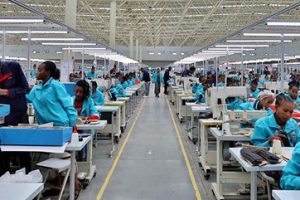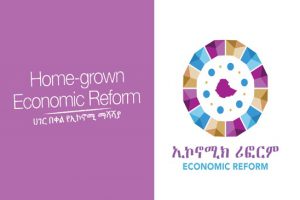BY GETACHEW MINAS
War is a major agent of change though neglected by many as a passing incident. Historians noted that its role as an independent “variable of change” has been ignored by politicians. Observing its importance, historians have studied war in a variety of contexts.
As to AA Stein, historians generally focus on the origins of war or on the “diplomacy” of wartime and postwar period. Yet, in the words of one historian; war must be studied “in the framework of its effects on political, economic and social aspects of people.”
Traditionally, the causes and effects of war have been the central concerns of international politics. But in “recent” years social scientists have paid relatively little attention to the effects of war. Earlier, with the end of World War II and the onset of the Cold War, the focus of scholarly concern shifted to the “prevention” of war.
Thus the new social science is oriented toward international relations with the purpose of avoiding or preventing war. Such studies are mainly concerned with deterrence, strategic stability, and crisis management. Focus is made on the “deterrence” rather than the effects of war. Thus, the focus of interest changes with time from causes and effects of war to its deterrence.
The evaluation made by the scholars on the likely consequences of war or conflict is necessary and useful before it is started. The evaluation is made by inter-disciplinary groups that are qualified or experienced with the assessment of outcomes of wars.
Consequences of war
The outcomes of war may not be fully felt until generations after the war is over. National leaders can force “future” generations to bear some of the outcomes and costs of their decisions. Indeed, it is assumed that most of the monetary cost of war is borne after the war has been over. As Clyton revealed, some of the effects of war persist while others are short-lived.
The effects of wartime mobilization on domestic labor, on employment levels, and on the utilization of normally unused labor supplies are simultaneous and concurrent; they are typically felt “only during” the war itself. Other effects that occur as a result of war are brief and transitory; they are experienced during the war and immediately after the war.
Studies on the effects of war on “production”suggest that even war losers return within years to the level of“prewar” production. As Kugler observed, other effects such as death are permanent, as are certain injuries.Wartime mobilization typically leads to “accelerated technological diffusion,”a process that may stabilize after the conflict is over.
It is not certainly reversed; there is no return to a “prewar” state of technology. Similar consequences may occur only “after” war ends, such as postwar baby booms. Others, such as the disappearance of persons are permanent.
In addition to categorizing the effects of war, whether by type, timing, or duration, it is important to classify wars themselves. This classification may include variations in their characteristics that determine which consequences occur and to what degree. Some wars last years, even decades; others last only a few days. Some wars involve two nations; others are labeled “world wars.”
Sometimes fighting is limited; in other cases the scope and degree of destruction is much greater. Typically, it is assumed that larger wars are likely to manifest more consequences and effects; in some wars, all belligerents feel “threatened;” in others, an aggressor state threatens other states; and at other times none of the belligerents maybe or perceive themselves to be seriously threatened.
As Stein suggested, there are differences in the ways nations wage war. In some cases, states can wage war without extensively mobilizing the society; in other cases, the state mobilizes the entire society for the war effort. Many of the domestic effects of war are indeed a “function” of the extent of wartime mobilization. The course of a conflict, and especially its conclusion, can also be important determinants of change. For the participants, wars are resolved by “victory, defeat, or compromise,” and each has a different impact.
Economic impacts of war:
It is strongly believed that war and its associated military spending has created “negative” economic impacts on the economy of the fighting parties. This has been supported by recent studies on the effects of war. Studies show the various macroeconomic effects of government “spending policies” on the economy during major periods of conflict. Despite, the moral, political, or philosophical justifications for these conflicts, the spending policies entail huge burden on the economy.
To analyze the effects of conflicts on the economy, the changes in a number of macroeconomic indicators have to be analyzed both during and after each conflict period. Baker tried to analyze macroeconomic indicators such as the GDP, public debt, taxation levels, consumption, investment, inflation and stock market situations and income distribution.
He observed that heightened military spending during conflict eliminates employment, additional economic activity and it contributes to the decline of overall economic development. These are some of the often discussed negative effects of heightened government spending on the war effort.
It is argued that development programs and projects specifically targeted at creating productive employment in all sectors of the economy would potentially have the same negative effect.
War efforts could benefit the developed countries that “produce and sell” weapons for countries on both sides of a conflict. One of the most commonly cited benefits for their economy include higher employment and GDP growth rates. This takes place throughout the conflict periods.
They take war as an opportunity to test and develop new weapons and technologies. Also, those engaged in “selling” weapons to warring nations benefit. The middlemen of weapons encourage the starting of wars between countries.
These countries are usually poor ones in which people suffer from extreme poverty and starvation. To add to their misery, local ethnic entrepreneurs “pray” for civil unrest and disturbances with the objective of scavenging in and benefitting from war ravages and devastations.
War efforts create several detriments to economic and social progress of a developing country. It is, however, widely mentioned that war created the appropriate conditions for future growth in the developed countries, including the US. It ended the great depression.
Government policies associated with “funding” conflicts resulted in the following economic indicators showing negative effects either during or after the conflicts:
• Public debt and levels of taxation increased during most conflicts;
• Consumption as a percent of GDP decreased during most conflicts;
• Investment as a percent of GDP decreased during most conflicts;
• Inflation increased during or as a direct consequence of these conflicts.
The higher levels of government spending associated with war tends to generate some positive economic benefits in the short-term. This is true specifically when increases in economic growth occur during conflict spending. However, negative unintended consequences occur either concurrently with the war or develop as “residual effects” afterwards thereby harming the economy over the longer term.
Conclusion:
Destruction is the salient feature of war. War kills people, destroys capital, and damages the land. War can also destroy the political and economic institutions that organize and sustain societal activity.
The purchase of weapons requires foreign exchange, which is earned from sale of export items that are mainly obtained from peasant farms. These farms lack modern inputs that boost productivity, leaving the rural sector unable to economically support the war efforts of African governments.
This situation forces them to look for external assistance, usually from former colonial powers. This is an unfortunate situation that leaves Africans in a “vicious circle of war and poverty.”
Recently, there was a threat that war would occur in Ethiopia, especially following the standoff between the federal government and TPLF. For many observers, it seemed that war is inevitable and the fear was that the country might end up losing and destroying all the progress it made in the economic arena.
But fortunately, the above-mentioned causalities and damage on the economy have been avoided as the law enforcement operation only took three weeks.
The government has said that the major military operation to enforce the law in Tigray regional state is over and the TPLF clique that has been controlling the entire region has lost its control within three weeks of operation.
As to reports, it ended up without causing damage to infrastructure. And this is a great achievement in avoiding the repetitive vicious circle of war and poverty in Ethiopia.
The Ethiopian Herald December 5/2020





